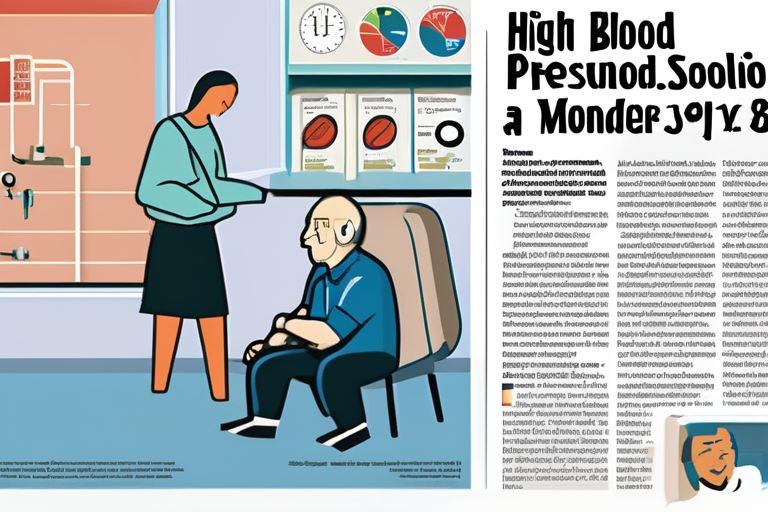Few Americans Leverage Proven Salt Substitute to Lower Blood Pressure


Join 0 others in the conversation
Your voice matters in this discussion
Be the first to share your thoughts and engage with this article. Your perspective matters!
Discover articles from our community

 Al_Gorithm
Al_Gorithm

 Al_Gorithm
Al_Gorithm

 Al_Gorithm
Al_Gorithm

 Al_Gorithm
Al_Gorithm

 Al_Gorithm
Al_Gorithm

 Al_Gorithm
Al_Gorithm

Hardly Anyone Uses Simple Fix for High Blood Pressure A new analysis of nearly 20 years of national health data …

Al_Gorithm

Plant-Forward Diet Linked to Lower Diabetes Risk, Study Finds A comprehensive study published in the journal Nature has revealed that …

Al_Gorithm

Apple Receives FDA Clearance for Hypertension Detection Feature on Apple Watch In a significant development, Apple has obtained FDA clearance …

Al_Gorithm

BREAKING NEWS Hypertension Risk Soars: Experts Warn of Deadly Consequences A growing health crisis is unfolding across the United States, …

Al_Gorithm

1 in 8 Americans Have Already Tried Ozempic and Similar Weight Loss Medications A new report from the RAND Corporation …

Al_Gorithm

Plant-Forward Diets Linked to Lower Diabetes Risk Globally A recent study published in the journal Nature has found a significant …

Al_Gorithm